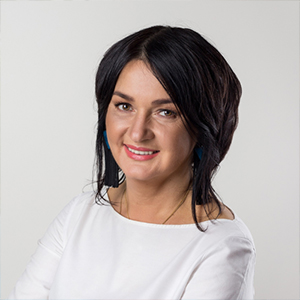
Ilona Krone
llona Krone, Ph.D. in clinical psychology from the State University of Latvia, began her journey in psychology in 2000. Her studies delved into child-parent relationships and neuropsychology, leading her to present findings at esteemed events like the World Congress of Psychology. Trained in Cognitive Behavioral Therapy (CBT) at several institutions, including Odyssea (International CBT Institute, Czech Republic), Ilona has practiced, taught, and conducted research on psychotherapy approaches since 2012. She gained recognition as a schema therapy supervisor/trainer in 2019. A key achievement in her career includes co-founding the Baltic Schema Therapy Institute in 2020, where she serves as the training program director. She’s actively supported colleagues all over the world . Dr. Krone has significantly contributed to the field through various roles, including a clinical psychologist at the Riga Psychiatry and Narcology Centre and the Maternity House of Riga. As a lecturer at Rigas’s Stradins University, she integrates CBT and ST principles into her teachings for both Bachelors’ and Masters’ and Phd students. Ilona is also an active contributor to various scientific databases and looks forward to playing a crucial role in the growth and dissemination of schema therapy knowledge and practice.
Parallel Process In schema therapy and Supervision
Co-Presented with Jan Praško & Marie Ociskova
The parallel process is a psychosocial phenomenon where the relationship dynamics between the therapist and the client are repeated in the supervisory relationship between the therapist and the supervisor. The concept of the parallel process can be a useful tool for understanding and solving problems in therapy. However, it can induce supervision drift or block the supervision process.
Objective:
This lecture aims to familiarize the reader with parallel processes in schema therapy supervision and discuss how to manage this phenomenon in supervision.
Method:
The lecture provides an overview of theoretical constructions and empirical studies related to the parallel process. Case vignettes were collected from trainees, training leaders and supervisors to provide real-life examples of how self-reflection and self-experience can enhance the understanding of parallel process in schema therapy training, practice, and supervision.
Results:
Interventions focused on the parallel process within supervision can help understand what is happening in the client-therapist relationship and can help focus on therapeutic and supervisory practices. Schema therapy interventions such as guided discovery, psychoeducation, imagery rescripting, cognitive techniques, role-playing, dialogue of modes, and chairwork might reveal and elaborate the parallel process.
Conclusion:
Supervisors and supervisees should acknowledge and be vigilant about the diverse manifestations of parallel processes and leverage their potential for supervision and therapeutic interventions.

